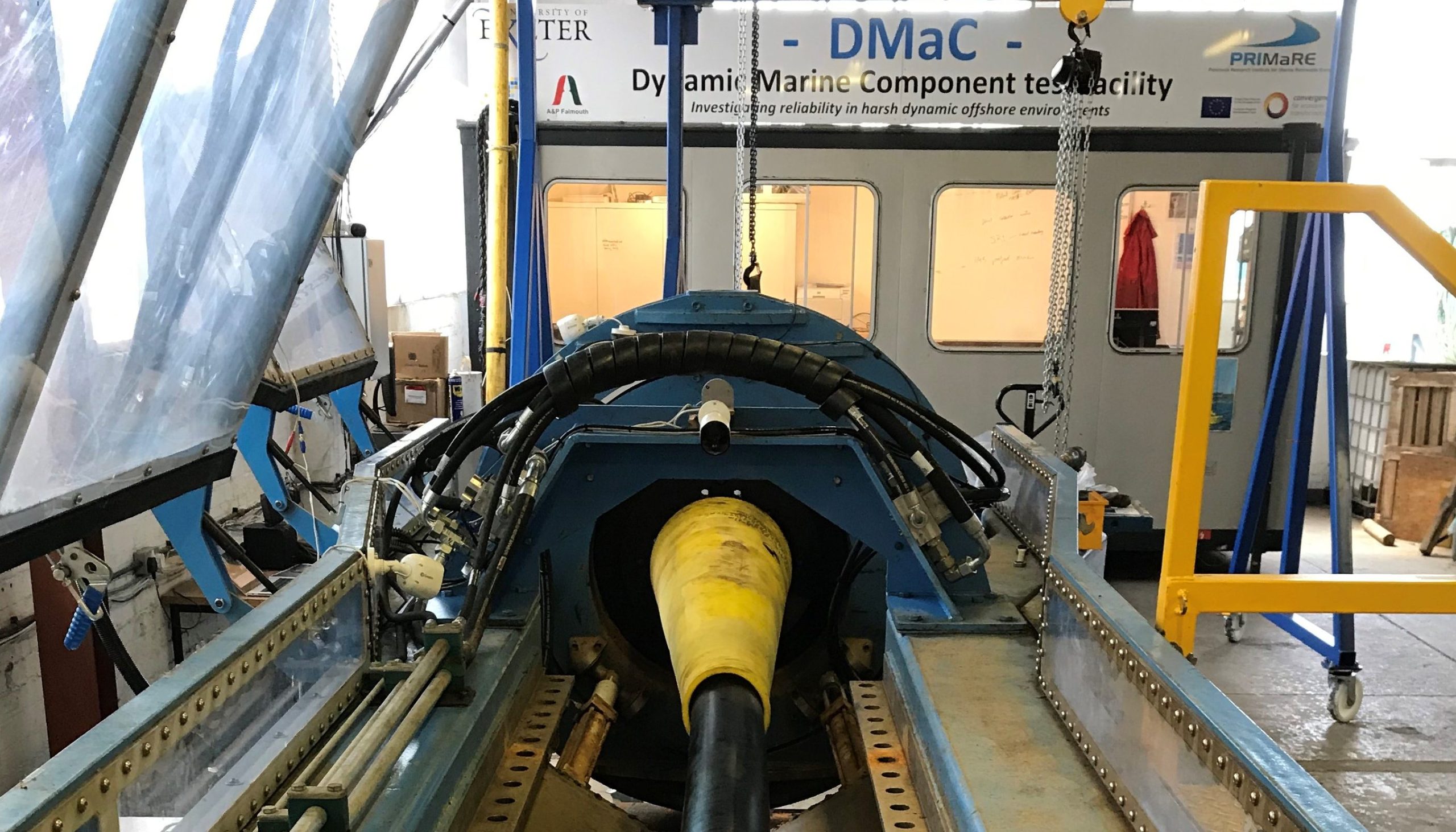CRP Subsea and Hellenic Cables have completed dynamic cable testing at the University of Exeter, as part of the EU-funded MaRINET2 research programme. The results show that when tested with a CRP Subsea Bend Stiffener (protecting it against overbending) the power cable survived 3.7 times as many cycles and was on average 72.5% stiffer than the power cable alone. These results highlight the importance of a Bend Stiffener’s presence to extend the fatigue life of the system to be used in future Floating Offshore Wind (FOW) applications.
CRP Subsea and Hellenic Cables collaborated to jointly apply for the MaRINET2 programme, as both companies are looking to increase the lifespan of dynamic subsea cables. The testing at the University of Exeter used a dynamic cable designed and manufactured by Hellenic Cables and a Bend Stiffener designed and manufactured by CRP Subsea. The power cable (only) and power cable with Bend Stiffener were individually tested to compare both performance and fatigue.
John Duggan, Principal Design Engineer at CRP Subsea, states: “These results are encouraging but expected and explain why the use of a CRP Subsea Bend Stiffener in such a system is critical. The CRP Subsea Bend Stiffener material has undergone an extensive and rigorous material qualification. This along with the comprehensive design methodology, manufacturing, and quality systems have been fully reviewed and approved by Lloyds Register. Our Bend Stiffener is designed to maintain a cable or flexible pipe above a given minimum bend radius in a dynamic application. This, in turn, increases the life of the product by protecting it against damage and fatigue, which can result due to over bending.” John Duggan, added, “It is imperative that we use our 25+ years’ experience of supplying Bend Stiffeners to all the major oil and gas manufacturers, without any failures in service, to support dynamic cable protection for FOW.”
George Georgallis, Head of R&D and Cable Engineering for Hellenic Cables commented: “At Hellenic Cables we are always looking forward in collaborating with industrial and academic partners involved in the offshore industry to promote and validate innovative concepts. The positive outcome of the fatigue test of a dynamic power cable coupled with a bend stiffener at the Exeter DMaC facility is very encouraging.”
The study is related to one of the key challenges for Floating Offshore Wind (FOW) developers, which is to ensure the long-term integrity of the dynamic cable, connecting the floating platform to the Offshore Sub-Station. Whilst dynamic cable assemblies are recognised as a key technical risk, the sector is not at a commercial scale yet, this funded research and development support is required to demonstrate and enhance dynamic cable solutions for FOW.


























